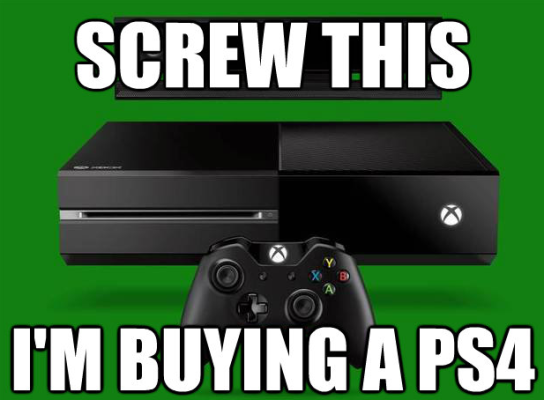Attention gamers: you win. The folks at Redmond infuriated many when it revealed that the Xbox One would come with a long list of potential caveats — there was the automated 24 hour check-in to keep the console in playable condition, and the restrictions on who you could share disc-based games with, not to mention the fact that it would shipped region-locked.
Unsurprisingly, the gaming community lashed out in a big way, and Microsoft is finally doing something about it. According to a recent mea culpa from Microsoft Interactive Entertainment President Don Mattrick, the company has suddenly decided to drop all that nonsense due to an outpouring of (largely negative) feedback.
It’s generally welcome news considering just how off-base Microsoft seemed to be with its apparently overzealous approach to DRM, but the move doesn’t come without its drawbacks. The ability to store your entire game collection (even copies of games you physically bought) in the cloud? Gone. Kotaku also reports that this late-stage change means that the Xbox One will have to be patched by players as soon as they received them.
Still, considering just how viscerally gamers reacted toward Microsoft’s policies (the image macro above is pretty mild compared what others have said), it’s frankly hard to see how the company could’ve played this any other way. Rather than standing on its own numerous merits, the Xbox One was almost immediately bogged down in important questions about how it would handle seemingly mundane actions like passing game discs among friends. What was Microsoft going to do, push the Xbox One onto store shelves knowing that a non-insignificant chunk of the gaming populace hated the thing on principle? Some would argue that’s exactly what Microsoft should’ve done, but it’s likely Microsoft felt its hand was being forced.
Of course, it didn’t help that rival Sony adroitly seized that opportunity. All Sony had to do to endear itself to legions of eager gamers at E3 was to point out just how un-Microsoft it was by sticking to a more traditional (read: hands-off) approach to managing how people play games. Between dealing with gamer rage and the looming threat of a competitor that was eager to capitalize on the Xbox One’s shortcomings, Microsoft finally wound up doing what it should’ve done far earlier in the One development process — listening to the players.

